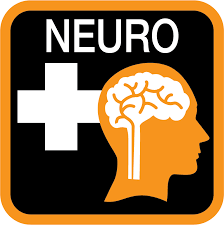DAN On-Site Neurological Assessment for Divers
Approximately two-thirds of divers with decompression illness have evidence of damage to the nervous system. These signs are often vague and can go unrecognized by the diver. This can cause them to be dismissed as insignificant or not dive-related. This program focuses on how to obtain essential information about a diver involved in a dive emergency and what information to relay to emergency medical services.
Availability: Contact us for booking information
Approximately two-thirds of divers with decompression illness have evidence of damage to the nervous system. These signs are often vague and can go unrecognized by the diver. This can cause them to be dismissed as insignificant or not dive-related.
This program focuses on how to obtain essential information about a diver involved in a dive emergency and what information to relay to emergency medical services.
Only medical professionals should diagnose medical conditions. The information you gather while performing a neurological assessment will be useful to help the dive physician understand the extent of the injury and how it has changed in the time it took to get the diver from the dive site to definitive care.
Course Objective
The DAN On-Site Neurological Assessment for Divers Provider (“DAN Neuro Provider”) program is designed to:
- Refresh the knowledge of the warning signs of a dive emergency
- Identify when it is appropriate to conduct an On-Site Neurological Assessment
- Conduct an On-Site Neurological Assessment
- Recommended Minimum Hours of Training
- Knowledge development (lecture) hours = 1
- Skills development (practical) hours = 3
This module should be taught as a four-hour program. The time needed to teach the course varies and depends on many factors, including the number of students and their ability to process the educational components of the program.
Learning Objectives, at the end of this program, participants will be able to:
- Understand and identify common warning signs of decompression illness
- Take a dive history to determine when it is appropriate to conduct a complete On-Site Neurological Assessment
- Use an On-Site Neurological Assessment Slate to conduct a complete On-Site Neurological Assessment
- Skill Performance Objectives
To successfully complete the DAN On-Site Neurological Assessment for Divers course, participants must demonstrate skill and confidence in conducting an On-Site Neurological Assessment.
Skills Development:
- Taking a History
- Taking vital signs
- Mental Function
- Consciousness
- Speech and Language
- Orientation to Time and Place
- Judgment
- Short-term Memory
- Abstract Reasoning
- Calculations
- Cranial Nerves
- Eye Control
- Facial Control
- Facial Sensation
- Hearing
- Motor Function
- Shoulders
- Biceps
- Triceps
- Finger spread
- Grip strength
- Hip flexors
- Quadriceps
- Hamstrings
- Feet
- Sensory Function
- Light Touch
- Sharp Touch
- Balance and Coordination
- Walking
- Finger-Nose-Finger



